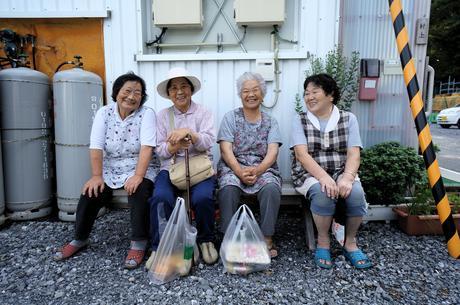I've been noticing lately, that life works in a circle, not to disney-fy this post too much. When we're born, we're looked after my our parents until we grow into adults. Later on, we might have kids, and we watch them grow too. But as they grow, our own parents become older. Some become more like children again; they need looking after. They lose their independence. But unlike when we were little, and we looked to our parents to help us, our parents won't ask for help. They want their independence, and they don't want to lose their self to age. How can you cope with this change in life? The truth is it's incredibly difficult to come to terms with the idea that your elderly parents need help to live their life. But, with a growing aged population most of us will reach that point sooner than later, and there are ways to help.
If your parents need it, you should think of arranging some support. Elderly people do not want to live in a care home; they want to live in their own house and keep their independence. With in-home support, this is a possibility. You do not need to put your parents in care for them to get the help they need. For more information on this possibility, have a look at http://justbettercare.com/sydney-12-locations/ . Here, you will find the information you need about this kind of service.
However, while you consider the possibility you must accept there might come a time when your parents cannot live alone. At this point, you will have to choose whether you take them into your own home . Or, if they need to go into care. You should base this decision on both, what you think would be best for them and what would be best for your family.
When you are around elderly parents, you must try and be patient with them. I wouldn't encourage you to think of them as children. But, remember that they are more vulnerable than they used to be. It might take them a little longer to understand things or even just to leave the house. You have to make sure you do not rush them or make them feel uncomfortable. As well as this, you should keep an eye out for signs that their mental health is declining. Common signs are lapses in attention. For a few seconds or moments, they might seem confused, distant or disorientated. At this point, you may want to arrange a doctor's appointment. Dementia can not be cured, but it can be slowed down if caught early.
Finally, it's important to make sure your parents socialise in their old age . If you have children, you should take them to visit regularly. But as well as this, you should encourage your parents to socialise in their age group. They could take part in local activities or invite friends over. But, it's important that they do not become detached from society. This can lead to them suffering from depression.

